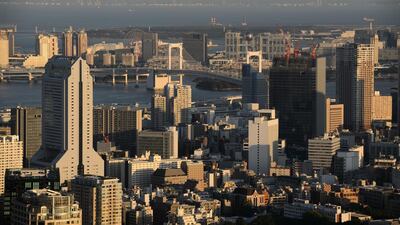After years of dithering and hoping the problem would go away, California is finally taking steps to address its housing crisis. In 2017 the state passed a series of bills designed to encourage the construction of new affordable housing - streamlining the regulatory approval process, providing more state funding and cracking down on local governments that fall short of their housing goals. Now, state senator Scott Wiener is pushing a new more aggressive package of legislation.
The most dramatic change Mr Weiner would make, which is similar to a parallel effort in the state assembly, would be to force cities to allow dense housing development near public transit. This is a great idea to help poor Californians, since lower-income people are more likely to use transit, and are the ones suffering the most from the housing shortage. Sadly, the bill is already encountering opposition from homeowners’ groups, which are no doubt eager to push up their property values. It is also receiving pushback from the Sierra Club, which offered the tortured rationale that allowing dense housing near public transit would cause political support for transit to drop. Other opponents claim that allowing new development would raise rents - a dubious assertion that is theoretically possible, but highly unlikely.
This opposition shows what an uphill battle it will be to get dense housing in California. That’s a shame, because density, combined with efficient public transit, is a great way to make a city affordable. For proof, Californians have only to gaze across the Pacific, to the city of Tokyo.
Three decades ago, at the height of Japan’s land price bubble, “affordable housing” would not have been words commonly associated with the country’s capital city. But 30 years can make quite a difference. As of 2015, the average residential rent in Tokyo was about $2.53 a square foot at current exchange rates. That’s about half the level for San Francisco. And Tokyo’s rents have held roughly constant for two decades.
Why is Tokyo housing so affordable? It’s not because Japan’s population is shrinking. More people crowd into the capital city every year.
News outlets are catching on to the real explanation: Tokyo rent is cheaper because it builds lots of housing. Blogger James Gleeson has an excellent post detailing the city’s heroic efforts to supply shelter to the people who move there. Every year, the city adds about 100,000 new homes: this increase has more than kept up with the increase in population, leading to a housing surplus.
________
Read more:
Why every long-term expat should buy a property in the UAE
New Zealand proposes ban on wealthy foreign investors buying property
London house prices drop at the fastest pace in almost a decade
Saudi Arabia unveils new housing programme to boost home ownership
_______
As Mr Gleeson shows, this rate of construction far outstrips Tokyo’s global rivals like London and New York. And it hasn’t required sprawl - all of Tokyo’s net new housing has come in the form of buildings more than three stories high. Nor has it required Tokyo’s denizens to live in smaller houses - average floor space per person in the city increased by about 28 per cent from 1988 to 2013.
In other words, Tokyo prevented a housing shortage by building more and building up. Interestingly, it appears that this change was instigated by Japan’s national government, which since the 1980s has assumed more authority over development rules. The national government revised regulations to allow more density. Combined with Japan’s famously simple zoning regulations, this resulted in a nation full of dense yet pleasant cities that offer decent, affordable living space. A key part of the equation, of course, is Japan’s efficient, convenient networks of public transportation.
One other reason that density might have been more politically acceptable in Japan is that houses are not used as a vehicle for middle-class wealth accumulation. Traditionally, Japanese homes were demolished and rebuilt every 20 to 30 years, to implement improved earthquake-safety technology, to provide jobs for government-favoured construction companies or simply because Japanese people demanded nice new houses. As a result, there are relatively few Japanese homeowners trying to prop up the value of their houses by lobbying the government to restrict supply. The opposite is the case in the US, where NIMBYs (not in my back yard) aggressively beat back any effort they think will limit rising housing prices, including new construction.
Further complicating matters in the US, there’s little chance that the federal government will intervene to override the objection of local NIMBYs and force cities to allow more housing. Instead, the task must fall to state governments. California, with its new determination to both force and encourage city governments to build more, is on the right track. The idea of building dense housing around transit hubs - a very Japan-like development pattern - is an especially good one. Simplified zoning codes, curbs on repeated administrative challenges to housing projects and less severe height restrictions would also be great ideas. Government-subsidised housing - which Japan also provides for its low-income citizens - is an important part of the mix.
In the cartoon movie Big Hero 6, Disney envisioned a fantasy city called San Fransokyo, that combined San Francisco's beautiful vistas, lush greenery and sweeping architecture with Tokyo's density and first-rate transit. California's state government - and other US state governments - should take this as inspiration, and think harder about how to apply Tokyo's successful development strategy to their own increasingly unaffordable cities.
Noah Smith is a Bloomberg View columnist

